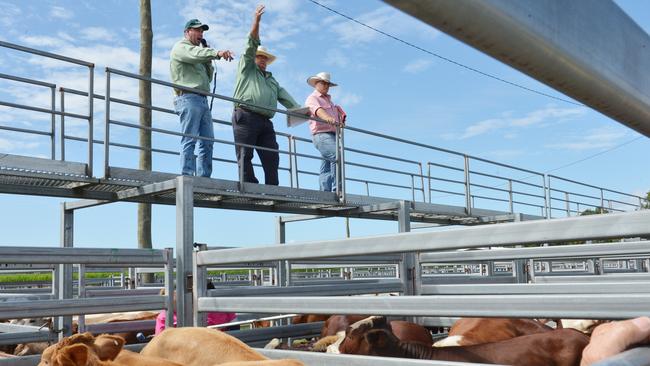Covid, China, poor northern seasons hit Australian agribusiness
ASX-listed agribusinesses have had a mixed year. See how they have performed.

AGRICULTURAL companies listed on the Australian Securities Exchange have largely suffered a poor year in 2020, if share prices are used as a barometer.
Most of the top 20 companies ended up with share price falls ranging from 23 per cent to 45 per cent from levels at the start of the year.
A WILD RIDE
How Australias major agribusinesses’ share price fared
UP
Costa 69%
Elders 52%
Rural Funds Group 27%
Bega Cheese 17%.
DOWN
The a2 Milk Company 27%
Treasury Wine Estates 41%
Source: ASX
While many survived the COVID-induced March 23 sharemarket collapse in good shape, some of them saw their fortunes sag as the year rolled on.
Others, such as Treasury Wine Estates, were hit by tariffs imposed by China designed to punish the Australian Government for, among other reasons, calling for an inquiry into the origins of the coronavirus.
Nufarm, on the other hand, was hit by poor seasonal conditions in the northern hemisphere severely affecting sales.
Of the biggest listed agribusinesses, only Costa Group Holdings, Elders, Bega Cheese and Rural Funds Group have seen their share prices flourish over the past 12 months.
Costa Group’s share price began the year at $2.50 but had risen about 69 per cent to $3.99 last week.
Elders’ share price rose from $6.46 on January 2 to about $9.80 last week — a rise of about 52 per cent — while Rural Funds Group’s shares lifted by a more modest 27 per cent over the year to close last week at $2.45.
Bega Cheese capped off a good year with the purchase of Lion Dairy and Drinks’ milk and yoghurt products.
Its share price rose from $4.32 on January 2 to $5.08 last week, an increase of 17 per cent.
Elders managing director and Agribusiness Australia chairman Mark Allison said that, while COVID-19 posed challenges, agricultural businesses needed to have a clear long-term strategy that carried their operations through normal fluctuating cycles.
Mr Allison said Elders was now reaping the benefits of its past two eight-point plans before entering its third plan.
The first eight-point plan, which ended in 2017, centred on turning the business around after some disastrous years.
“The second eight-point plan concentrated on 10 per cent growth and a 20 per cent return on capital,” he said.
“Our strategy is to have a cost and capital base which allows you to make good money in bad seasons and great money in good seasons.
“Last year, we had equal record profit in a 100-year drought and we made good money.
“This year, was a good season where we were up 80 per cent in net profit after tax.”
Mr Allison said the third eight-point plan included winning market share and increasing gross margins while driving the company’s agricultural technology and sustainability agendas.
The ASX’s largest agricultural company, The a2 Milk Company, survived the COVID-induced sharemarket in March, with its share price topping $20 in July.
But its milk went sour by the end of the year, when the full impact of daigou sales became apparent, prompting its share price to fall to less than $10, a drop of about 27 per cent from its $14.02 price on January 2.
The second largest company, Treasury Wine Estates suffered badly from China’s decision to slug Australian wines with hefty tariffs, with its share price falling 41 per cent to $9.46, a far cry from the year’s start at $16.15 a share.
TWE managing director Tim Ford recently said the company would now look to direct sales into other key luxury markets to offset the financial hit.
Of the smaller capitalised companies, goat milk infant formula manufacturer Nuchev ended the year at $1.09 a share — less than a third of its 2020 opening price of $3.79.
The fledgling company only listed on the ASX last December at $2.60 a share and quickly rose to $3.85.
It was hit hard during the global sharemarket crash on March 23, plummeting to $1.37.
It recovered by May but it has been a steady downhill slide since then.
One of the big winners during the year was West Australian regenerative food company Wide Open Agriculture, whose shares jumped more than seven times over 12 months, from 13 cents to 97 cents.
MORE


